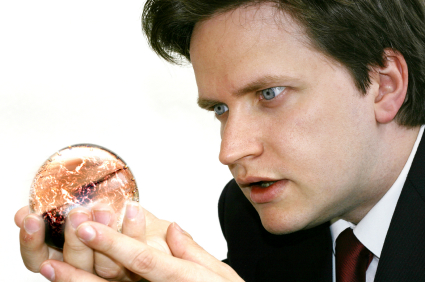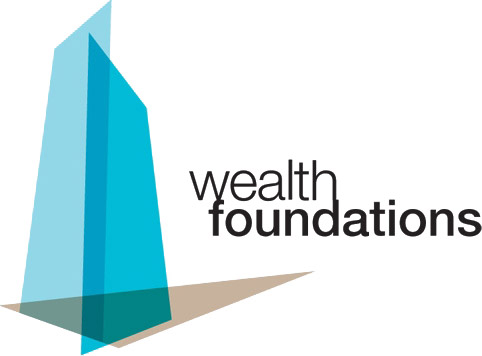

 How good is your crystal ball?
How good is your crystal ball?
We’ve just been through (arguably) the worst share market downturn since 1929. We’ve also experienced a recovery that few predicted was possible at the start of 2009. Why were we not able to predict these events earlier and with more precision?
You may think it’s because you don’t have access to the information that the experts have. Yet most of the experts find successful predicting just as tough. While it was hard to ignore some of the apocalyptic predictions that were being thrown around during the depths of the downturn, acting on them would have proved very costly.
So, which predictions do you follow and which do you ignore? Or is there another way to manage your financial affairs.
Are you confusing skill with luck?
Most of us love to predict. We have an in-built addiction to prediction and a desire to look for patterns (even when none exist). When told that the outcomes of an event are random (e.g. a coin toss), we still try to identify patterns. It means that we are prone to fooling ourselves into thinking that randomness is not random. We confuse outcomes of chance for outcomes of skill.
While you may enjoy this behaviour, it does have a price. You need to work out if the enjoyment is worth the cost.
Consider the following:
1) Not everyone’s predictions can be right
The purpose of predicting is to try and out perform the market. Yet, few appreciate that it is impossible for everyone to beat the market.
This makes perfect sense if you consider that for every buyer there is a seller – all investors cannot be buyers (or sellers).
The return of the market represents the average return of all investors. In order to beat the market you have to perform better than the average return of all investors. Obviously, we can’t all beat the average.
This does not stop us from believing otherwise – another human frailty seemingly linked to our over optimistic perception of ourselves relative to others.
A study that required drivers to rank their own safety and driving skill relative to others in the group found that 76% considered themselves as safer than the driver with median safety.
And 65% considered themselves more skilful than the driver with median skill.
Is your ability to predict better than that of the average investor?
Chances are that you will perceive it to be so. Reality, however, suggests that your odds of beating the average are no better than 1 in 2.
2) Prediction has a cost
Compared to the investor that does not predict (or at least ignores their predictions), the investor who acts on their predictions will inevitably trade more. The cost of this activity (e.g. transaction costs, capital gain taxes, etc) reduces their odds of beating the average to less than 1 in 2.
Most serious investors would consider gambling at a casino, where the odds on offer are lower than those available by chance, to be a foolish investment strategy.
3) The market is a complex and adaptive system
Investment markets are far more complex than most people accept. Recent research has recognised them as Complex Adaptive Systems. These are systems in which the agents (who interact with the system) are also the components of the system. In other words, we as investors (agents) interact with the market (system) which then provides feedback to us and affects our behaviour. A simple example of this concept is the Story of the Red Indians.
The market is also adaptive, meaning that it has the capacity to change and learn from experience. While it is linked to the economic environment, it also forms part of that environment. As economic conditions change, the market changes. And, because it is also part of the economic environment, as the market changes, economic conditions change. This forms an endless loop which makes it extremely difficult to directly attribute cause and effect.
It leads to outcomes that are far more unpredictable than we would like them to be. Outcomes simply emerge without any apparent cause. For example, a termite hill is an amazing piece of architecture with a maze of interconnecting passages, caverns and ventilation tunnels that just emerges as a result of the termites following a few simple local rules. There is no grand plan for its design.
As the participants increase the complexity of their systems for analysing and assessing investment markets, the markets add even further layers of complexity and adaptive behaviour. This makes reliable prediction an extremely difficult, if not impossible, task.
Is there a substitute for forecasting?
You can still make intelligent financial choices that put the odds in your favour, without the need to know what the future holds. Letting go of the need to forecast opens up opportunities to add value through tax and cost savings and capital management strategies that offer a much higher probability of upside.
This all helps to improve your chances of achieving your long term objectives. The biggest hurdle is to overcome an in-built addiction to predict that offers no, or even negative, expected return.

1 Comment. Leave new
Ross Gittins (Economics Editor for SMH) agrees. Have a read of what he has to say on the subject – go to
http://www.smh.com.au/business/be-average-patient-aware-and-balanced–but-mostly-give-up-on-control-20100425-tlmp.html